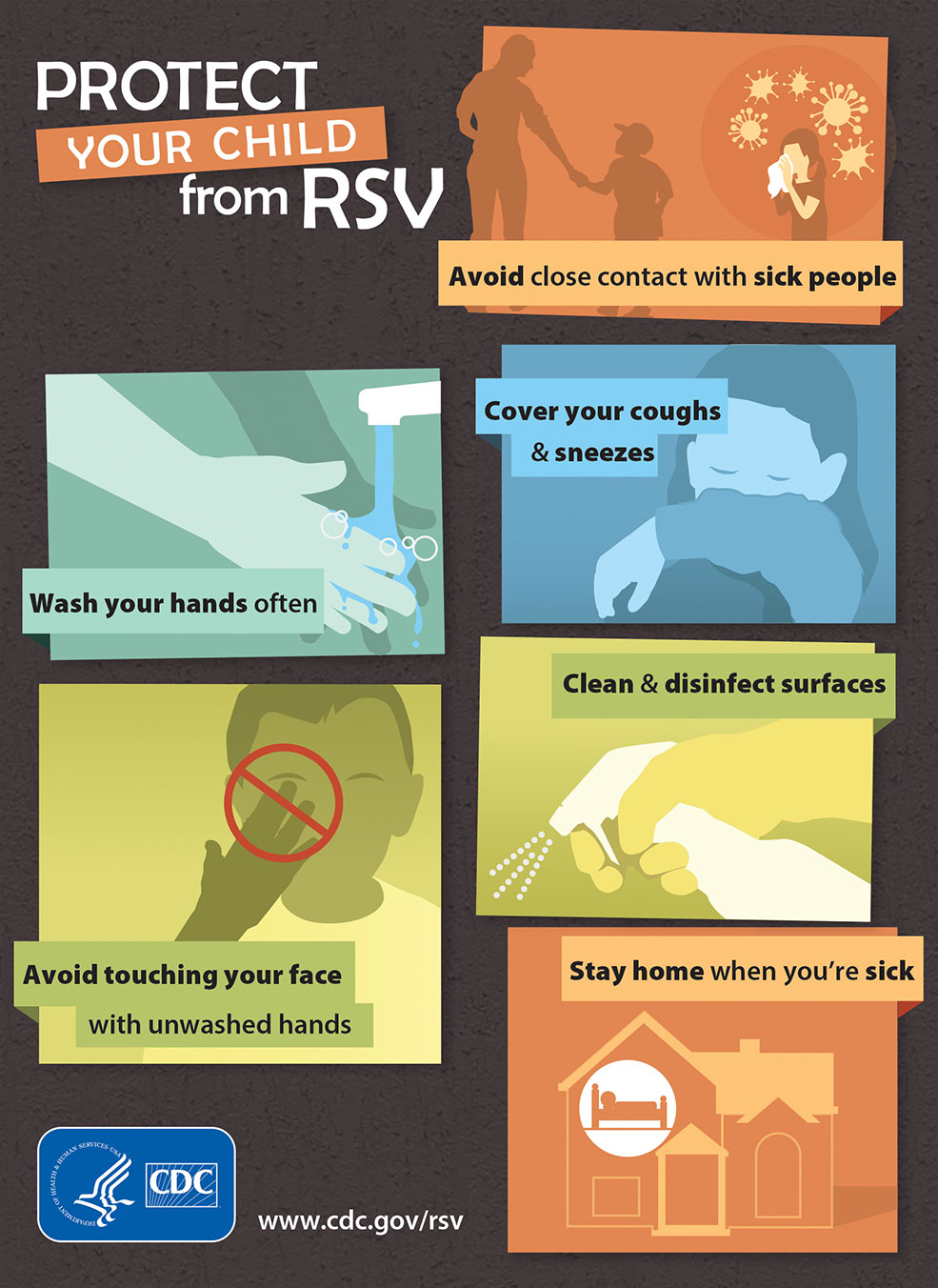Respiratory Syncytial Virus (RSV)
MA DPH & Massachusetts Chapter of the American Academy of Pediatrics: RSV Letter to Families
CDC: Respiratory Syncytial Virus Infection (RSV)
CDC: Respiratory Syncytial Virus Infection (RSV):
Respiratory syncytial (sin-SISH-uhl) virus, or RSV, is a common respiratory virus that usually causes mild, cold-like symptoms. Most people recover in a week or two, but RSV can be serious, especially for infants and older adults. RSV is the most common cause of bronchiolitis (inflammation of the small airways in the lung) and pneumonia (infection of the lungs) in children younger than 1 year of age in the United States.


